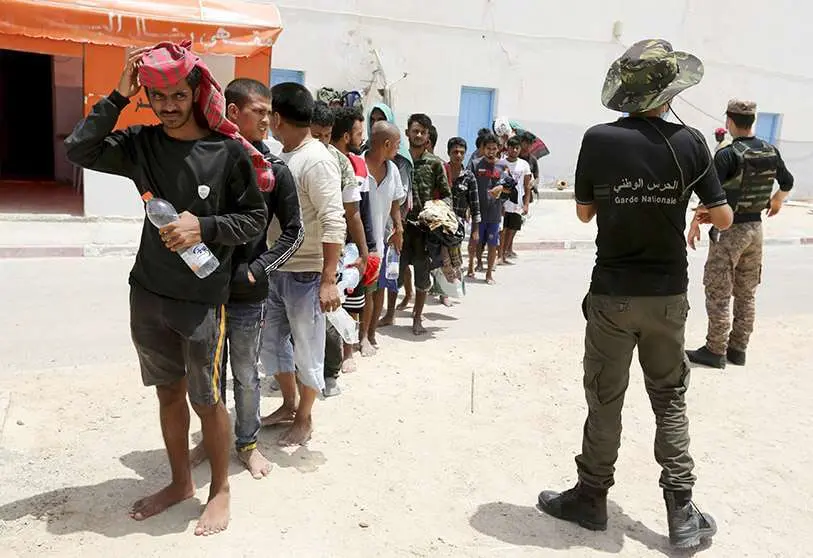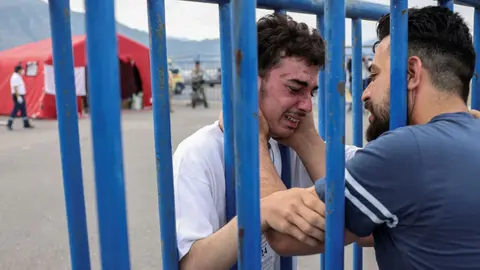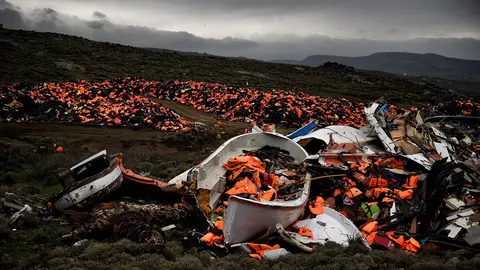Tunisia and Libya reach agreement to resolve border migrant crisis

Tunisia and Libya have agreed to share responsibility for the hundreds of migrants who have been stranded on their joint border for more than a month. This was announced by a spokesman for Tunisia's interior ministry, Faker Bouzghaya, AFP reports. "We have agreed to share the groups of migrants who are at the border," he said after a joint meeting with Libyan authorities in Tunis.
On the one hand, Tunisia will take charge of a group of 76 men, 42 women and eight children, while Libya will take charge of the remaining 150 migrants. According to Bouzghaya, the groups have been transferred to reception centres in cities such as Tatouine and Medenine, where they received health and psychological care from the Tunisian Red Crescent.
The Libyan Ministry of Interior has also announced the agreement, noting that it will serve to "put an end to the crisis of irregular migrants stranded in the border area".
For months, humanitarian organisations and UN agencies have been denouncing the Tunisian authorities' treatment of migrants - mainly from sub-Saharan African countries - who have been displaced to desert areas near Ras Jedir without any support. Similarly, despite the recent agreement, NGOs have reported that three groups of some 300 migrants remain stranded in the area.

Tunisia has been in the spotlight of several humanitarian associations for months over the treatment of migrants in the country. Up to 1,200 Africans were "expelled or forcibly transferred by Tunisian security forces" to desert regions bordering Libya and Algeria, as condemned by Human Rights Watch. Humanitarian workers have reported at least 25 deaths of migrants stranded in the Tunisia-Libya border area since last month.
In addition, racial tensions have erupted in the city of Sfax following the murder in early July of a Tunisian man after riots with migrants.
Due to this bleak situation, many migrants have tried to leave the country by crossing the Mediterranean, one of the deadliest routes in the world. According to the International Organization for Migration, more than 1,800 people have died attempting the route so far this year.

Following President Kais Saied's racially tinged speech claiming that 'hordes' of migrants were causing crime and posing a demographic threat to the country, attempts to leave Tunisia by sea multiplied in March and April. Saied's controversial statements also led to an increase in xenophobic attacks against migrants and black citizens across the country.
Both Tunisia and Libya are major gateways for migrants and asylum seekers from sub-Saharan Africa trying to reach Europe through perilous journeys for a better life.
At least 11 migrants have died in a recent shipwreck off the coast of Sfax, according to local authorities. Another 44 are missing and only two were rescued. The migrants were trying to reach the Italian island of Lampedusa, only 130 kilometres away from the Tunisian city.










